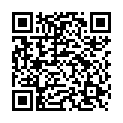|
|
|
| Module code: WIBASc165 |
|
|
4V+2U (6 hours per week) |
|
5 |
| Semester: 1 |
| Mandatory course: yes |
Language of instruction:
German |
Assessment:
Written or oral examination. The type of examination will be announced on the notice board at the beginning of the course.
[updated 02.07.2019]
|
WIBASc165 (P450-0065) Industrial Engineering, Bachelor, ASPO 01.10.2013
, semester 1, mandatory course
|
90 class hours (= 67.5 clock hours) over a 15-week period.
The total student study time is 150 hours (equivalent to 5 ECTS credits).
There are therefore 82.5 hours available for class preparation and follow-up work and exam preparation.
|
Recommended prerequisites (modules):
None.
|
Recommended as prerequisite for:
WIBASc-515 Automation Engineering
WIBASc-525-625-FÜ12 Using Mathematical Software
WIBASc-525-625-FÜ19 Simulation II
WIBASc-525-625-FÜ23 Simulation
WIBASc-525-625-FÜ27 Mathematics III
WIBASc-525-625-Ing18
WIBASc-525-625-Ing19 Fluid Energy Machines
WIBASc-525-625-Ing21 Fluid Dynamics
WIBASc-525-625-Ing22 Automation Technology
WIBASc255 Statistics
WIBASc265 Mathematics II
WIBASc345 Design Technology / CAD
WIBASc435 Thermodynamics
WIBASc445 Electrical Engineering
[updated 19.01.2022]
|
Module coordinator:
Prof. Dr. Frank Kneip |
Lecturer:
Prof. Dr. Frank Kneip (lecture)
Prof. Dr. Frank Ulrich Rückert (lecture)
Michael Ohligschläger (exercise)
[updated 19.12.2019]
|
Learning outcomes:
After successfully completing this module students will:
_ be able to prove suitable statements by means of mathematical induction.
_ be able to analyze and name properties of mathematical sequences and selected function types.
_ have mastered the elementary techniques of differential and integral calculus.
_ be able to approximate functions by Taylor polynomials and assess the quality of their approximation.
_ have learned to mathematically model and solve physical-technical as well as economic problems and interpret the result.
[updated 02.07.2019]
|
Module content:
1. Mathematical induction
2. Number sequences and limits
3. Principles of functions (e.g. monotony, continuity, boundedness, limits)
4. Introduction to differential calculus
a. Differentiability
b. Technique of differentiation
5. Applications of differential calculus
a. Modeling using examples
b. Differential calculus in economics
c. Physical-technical applications
d. Extreme value tasks
6. Introduction to integral calculus
a. Area calculation and definite integrals
b. Fundamental theorem of calculus
c. Indefinite integrals
d. Improper integrals
e. Integration techniques
f. Solid of revolution
7. Applications of integral calculus
8. Taylor series, infinite series
9. Complex numbers
[updated 02.07.2019]
|
Teaching methods/Media:
Lecture:
_ Lecture at the blackboard, projector
_ Demonstrations with the Maple computer algebra system
_ Regularly revised lecture notes will be published for the module and additional written materials will be made available electronically.
_ Lecture notes and materials are available electronically.
_ Discussion forum on the Internet
Exercises
_ Exercises will be provided weekly and solved independently.
_ Mr. Ohligschläger will offer a voluntary tutorial in which the sample solutions of exercises will be discussed and worked on in teams.
Computers/software that will be used in the course and/or can and should be used by students for preparation and follow-up:
_ Programmable calculator
_ Maple computer algebra system
[updated 02.07.2019]
|
Recommended or required reading:
_ Papula, Lothar: Mathematik für Ingenieure und Naturwissenschaftler, Band 1, 13. Auflage, Vieweg + Teubner Verlag, 2011
_ Papula, Lothar: Mathematik für Ingenieure und Naturwissenschaftler _ Anwendungsbeispiele; 6. Auflage, Vieweg + Teubner Verlag, 2012
_ Meyberg, K./Vachenauer, P.: Höhere Mathematik 1; 6. Auflage, Springer Verlag, 2001
_ Neunzert, H./Eschmann, W.G. u.a.: Analysis 1; 3. Auflage, Springer Verlag, 1996
_ Leupold, W. u.a.: Mathematik _ Ein Studienbuch für Ingenieure, Band 1; 2. Auflage, Hanser Fachbuchverlag, 2003
_ Preuß W./Wenisch, G.: Lehr- und Übungsbuch Mathematik, Band 1; 3. Auflage, Hanser Fachbuchverlag, 2003
_ Preuß W./Wenisch, G.: Lehr- und Übungsbuch Mathematik, Band 2; 3. Auflage, Hanser Fachbuchverlag, 2003
_ Bartsch, Hans-Jochen: Taschenbuch mathematischer Formeln für Ingenieure und Naturwissenschaftler; 22. Auflage, Carl Hanser Verlag, 2011
_ Papula, Lothar: Mathematische Formelsammlung für Ingenieure und Naturwissenschaftler; 10. Auflage, Vieweg + Teubner Verlag, 2009
_ Teubner-Taschenbuch der Mathematik Bd.1; 2. Auflage, Vieweg + Teubner Verlag, 2003
[updated 02.07.2019]
|

